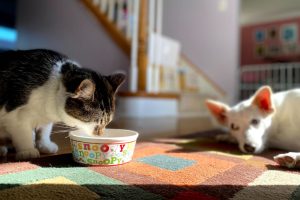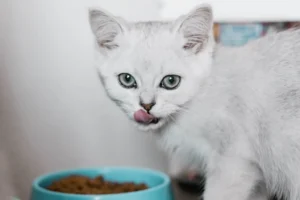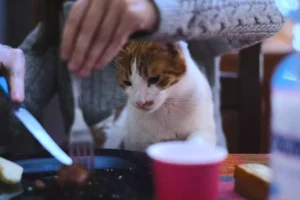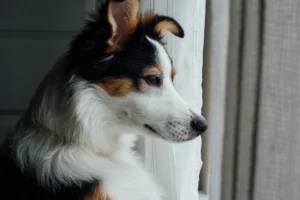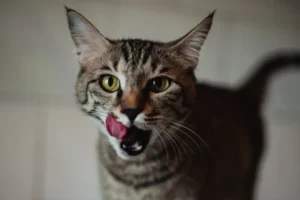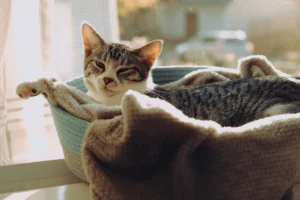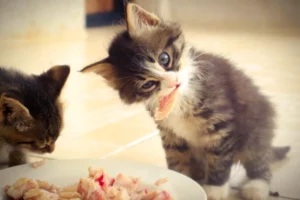Cats are known for being picky eaters, turning their noses up at many foods that we humans enjoy. But have you ever wondered why cats can’t eat vegetables? The answer lies in their unique biology and dietary needs. Let’s explore the reasons behind why vegetables are not a suitable food choice for our feline friends.
Carnivorous Nature of Cats
Cats are obligate carnivores, meaning they have a biological requirement for a diet that consists mainly of animal protein. This is due to their unique nutritional needs that can only be met through animal-based sources. Vegetables lack essential nutrients like taurine, an amino acid critical for cats’ heart health and vision. Without a primarily meat-based diet, cats can develop serious health issues such as heart disease and nutritional deficiencies. Therefore, feeding your feline friend a diet high in vegetables can lead to severe health consequences.
Digestive System Differences
When it comes to their digestion, cats have limited enzymes that aid in breaking down plant matter. Unlike omnivores like humans, who have enzymes to efficiently digest a variety of foods, cats lack the necessary digestive tools for processing vegetables effectively. This can result in gastrointestinal upset and nutrient malabsorption, as their bodies struggle to extract the required nutrients from plant-based sources. Therefore, sticking to a diet rich in animal protein is crucial to maintaining your cat’s digestive health and overall well-being.
Unique Insight: Evolutionary Adaptation
One fascinating aspect of cats’ dietary requirements stems from their evolutionary history as predators. Through centuries of hunting small animals for food, cats have developed a biological need for a diet high in animal protein. This has shaped their digestive systems to efficiently process and derive essential nutrients from animal-based sources. Vegetables simply do not provide the optimal nutrition that cats require to thrive, highlighting the importance of honoring their carnivorous nature when it comes to mealtime.
Danger of Nutrient Deficiencies
Feeding cats vegetables can lead to nutrient deficiencies due to their strict carnivorous nature. Cats require animal protein, which contains vital nutrients like taurine and vitamin A that are crucial for their overall health. Vegetables alone cannot provide essential nutrients that cats need to thrive. A diet lacking in animal protein may result in serious health issues such as heart problems, muscle deterioration, and weakened immune system. To ensure your cat’s optimal health, it’s essential to prioritize meat-based diets that meet their specific nutritional needs.
Preference for Meat
Cats have a natural instinct for meat consumption, stemming from their ancestral hunting behavior. Their biological makeup is designed to thrive on a diet rich in animal protein, making it challenging for them to digest plant-based foods effectively. Meat provides essential amino acids like taurine that cats cannot produce on their own, making it a vital component of their diet. Due to their highly specialized dietary requirements, cats may not find vegetables as palatable or digestible as meat, leading to nutritional imbalances if offered as a primary food source. Opting for meat-based cat foods ensures that your feline companion receives optimal nutrition tailored to their biological needs.
Potential GI Issues
Cats are obligate carnivores, meaning their bodies are designed to thrive on a diet primarily consisting of meat. When cats consume vegetables, it can lead to potential gastrointestinal issues such as upset stomach, diarrhea, or vomiting. This is because cats lack the necessary enzymes to break down plant matter efficiently, unlike omnivores or herbivores.
Furthermore, some vegetables contain antinutrients, such as oxalates or lectins, that can be irritating to a cat’s digestive system. These substances can disrupt the delicate balance of a cat’s gut flora, leading to digestive upset and discomfort.
It’s essential to be cautious when introducing new foods to your cat’s diet, as their digestive systems are sensitive and prone to disruption. If you notice any adverse reactions after feeding your cat vegetables, it’s best to consult with your veterinarian to determine the best course of action for your feline friend.
Safe Alternatives
If you’re looking to supplement your cat’s diet with additional nutrients without the risk of GI issues, there are plenty of safe alternatives to vegetables. Lean meats such as cooked chicken or turkey can provide a good source of protein for your cat. Fish is another excellent option, but be sure to cook it thoroughly to avoid any potential parasites.
Additionally, commercial cat foods formulated specifically for feline nutrition are a convenient and safe way to ensure your cat is getting all the essential nutrients they need. Look for brands that have high-quality meat as the primary ingredient and consult with your veterinarian to choose the best option for your cat’s specific dietary needs.
Remember, when it comes to your cat’s diet, it’s essential to prioritize their health and well-being. By choosing safe alternatives to vegetables and consulting with your veterinarian, you can ensure that your feline friend is getting the proper nutrition they need to thrive.
Common Misconceptions
Contrary to popular belief, cats are obligate carnivores, meaning their bodies require nutrients found in animal tissues to thrive. While some vegetables can be safe for cats in small quantities, they lack essential nutrients like taurine and arachidonic acid that are crucial for feline health. Feeding your cat a diet primarily consisting of vegetables can lead to nutritional deficiencies and serious health issues. Always remember that cats have specific dietary needs that are best met through a balanced meat-based diet.
Consultation with a Veterinarian
Before incorporating any new foods into your cat’s diet, it’s crucial to consult with a veterinarian to ensure their nutritional needs are being met. Veterinarians can provide personalized advice based on your cat’s health status and dietary requirements. They can recommend suitable cat foods or supplements to address any deficiencies that may arise from a lack of a meat-based diet. Remember, your veterinarian is your best ally in keeping your feline friend healthy and happy.
Alex, a passionate animal lover, has experience in training and understanding animal behavior. As a proud pet parent to two dogs and three cats, he founded AnimalReport.net to share insights from animal experts and expand his knowledge of the animal kingdom.

